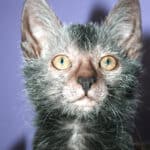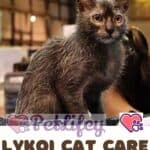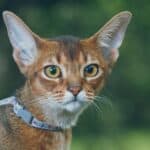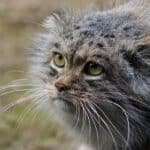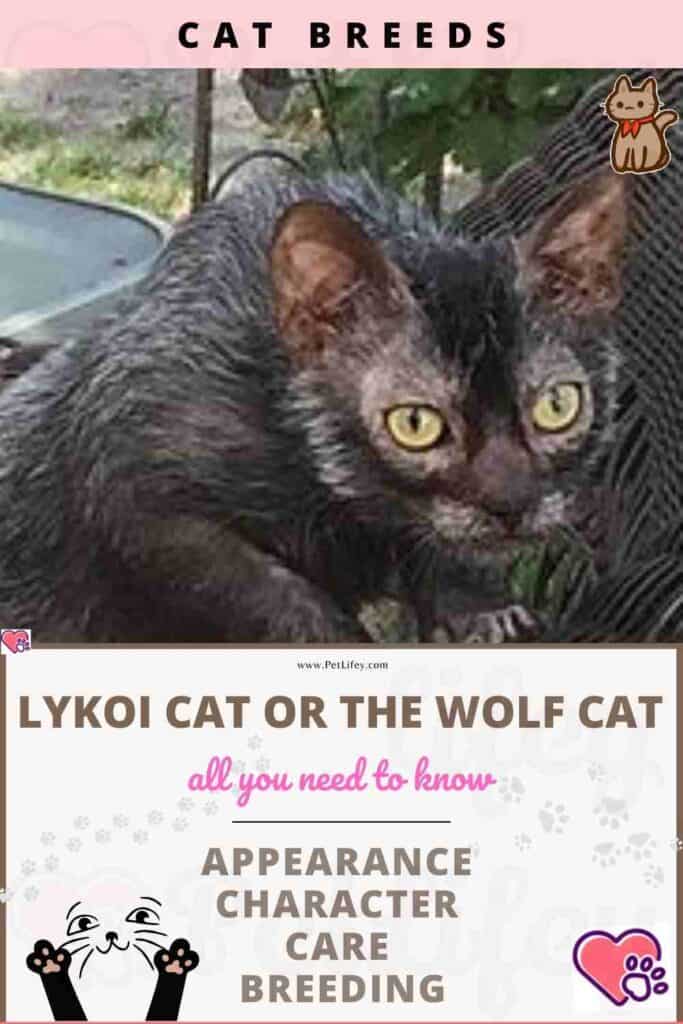
The Lykoi cats are also called wolf cats, for their physical as similar to that of a small wolf, where its coat and its eyes are the characters that make them so unique. This breed was hardly recognized as of 2011.
Lykoi cats arise from the natural cross between 2 different litters of short-haired cats in the United States. Throughout the article you will learn about the origin of this particular breed, its physical characteristics, its character and the care they need to maintain their health.
Origin of Lykoi cats
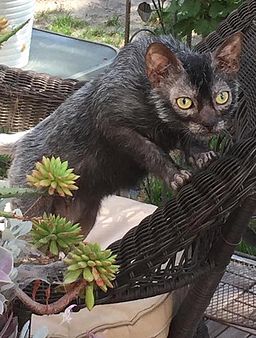
Lykoi cats are native to the United States, specifically Tennessee and Virginia. When the first pups were born, the owners noticed that they had parts of their body without fur, which led them to think that they were genetically related to some breed of hairless cats such as the Sphinx .
But when conducting the relevant studies this theory was rejected. In addition, they discovered that the kittens were in excellent health.
From this moment, they began the process of publicizing the new breed and having it recognized as such in breeder associations and cat fairs. And it was named Cat Lykoi, since it is the meaning of wolf in Greek.
Currently there are very few species of this breed and those that exist have been given from the crossing between two of the first offspring.
Physical characteristics of Lykoi cats
Lykoi cats, as we mentioned before, are recognized mainly for having an appearance that reminds us of a cub. With specific features such as the lack of fur in certain areas of its body such as the face and ears and also for its large yellow eyes.
The eyes are large compared to the size of the face and also slightly elongated upwards. Initially they are born without hair all over their body, as it begins to come out as they develop. Their fur can be black, grey or silver grey.
Their body is long and slim, of medium size and can weigh from 3 to 7 kilograms. It has pointed ears, a black nose, and a slightly triangular head.
Character of the “wolf cat”
The few species of Lykoi cats that have been adopted into homes have shown a very friendly and sociable character. Which is sometimes hard to believe, since at first glance these cats can reflect being wild.
Lykoi cats reflect a character similar to that of any domestic cat, however they are not so independent.
They love that their owner is close to them and pampering them. Like the guests who come to your house, because at first they can be a little withdrawn with strangers, but later they are sweet.
They are curious, playful cats, quite intelligent and with the intact hunting instinct that characterizes cats so much.
Lykoi Health
At the time when the first offspring of this breed of cats were born, it was thought that due to their lack of fighting in some areas of the body, they would have some congenital health problem. However, after conducting studies and medical examinations, any abnormality that made them suffer from any disease was ruled out. The lack of fur was only the result of a genetic mutation and they are in excellent health.
They have a high life expectancy, easily exceeding 17 years of life. They can have health problems, such as urinary tract diseases, among the most common.
But this disease is not specific to the Lykoi breed, any cat could suffer from them. This is why regular vet visits are so important .
Caring for the “Lykoi Cat”
Lykoi cats, being very healthy cats, do not need different care than any domestic cat. You simply have to provide the basic care:
- Provide a diet with adequate nutritional values for him, that is, the feed must have high quality protein, since they are carnivorous animals. However, if you have doubts about this, it is better to consult with a veterinarian.
- It is important to maintain the hygiene and grooming of your Lykoi cat. You should clean with a damp cloth and very carefully around his eyes to avoid infection. Likewise its ears, legs and tail. Even if they have a short and sparse coat, you should brush it at least once a week . Well, it is important to remove excess dead hair to prevent hairballs from forming in the digestive tract.
- Encouraging exercise as a game in your Lykoi cat is important, because in addition to being fun for them, it will go against obesity problems that can later lead to serious diseases.
- Regular visits to the vet and having up-to-date vaccinations are key to detecting and avoiding any possible disease that may develop.
As you could see, the “wolf cats” are peculiar cats with an original physique and a perfect personality to be the new member of a home. We hope that you have learned about this particular breed and that if you found the post interesting, you will share it on social networks. Did you know Lykoi the cat?

